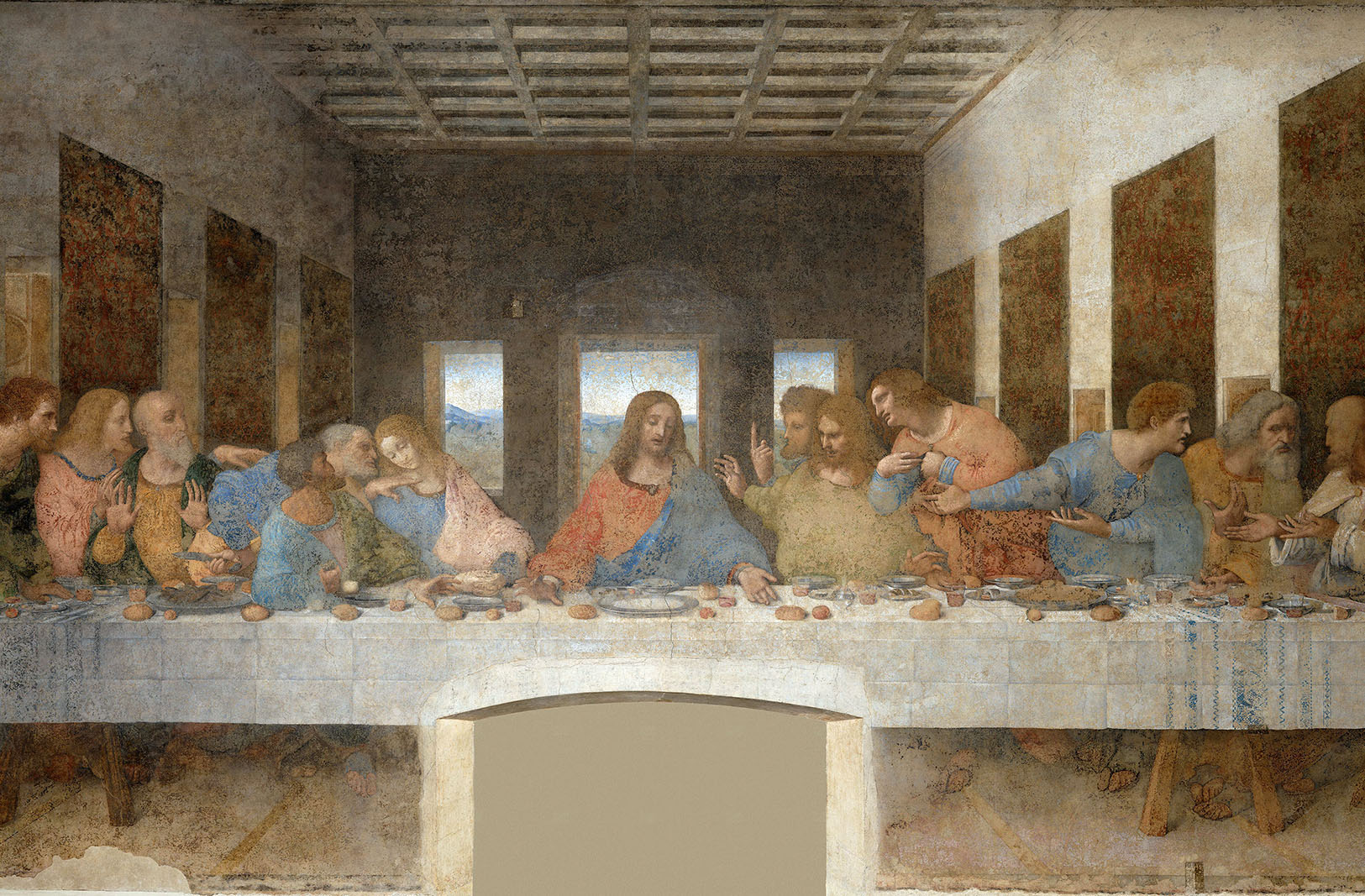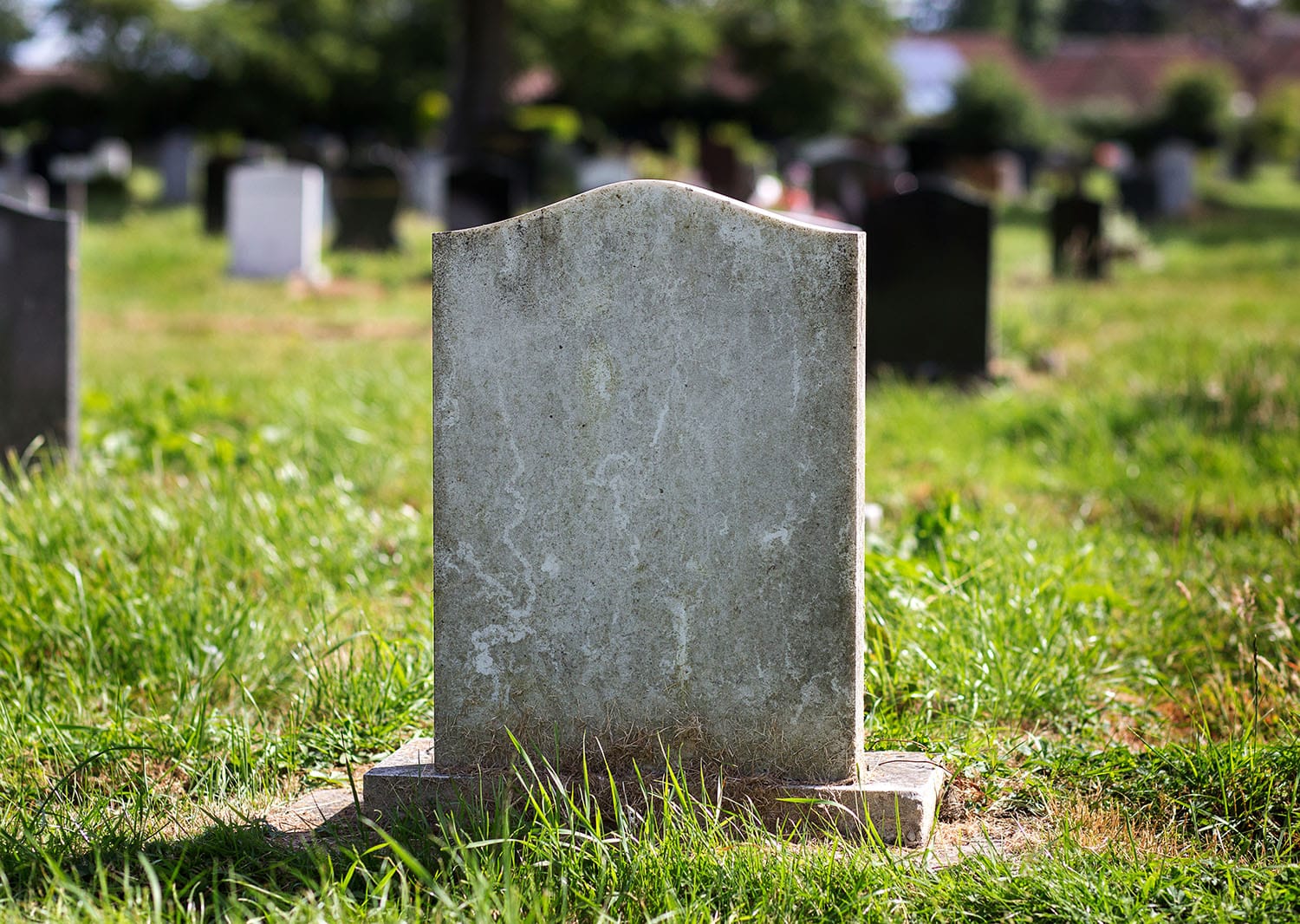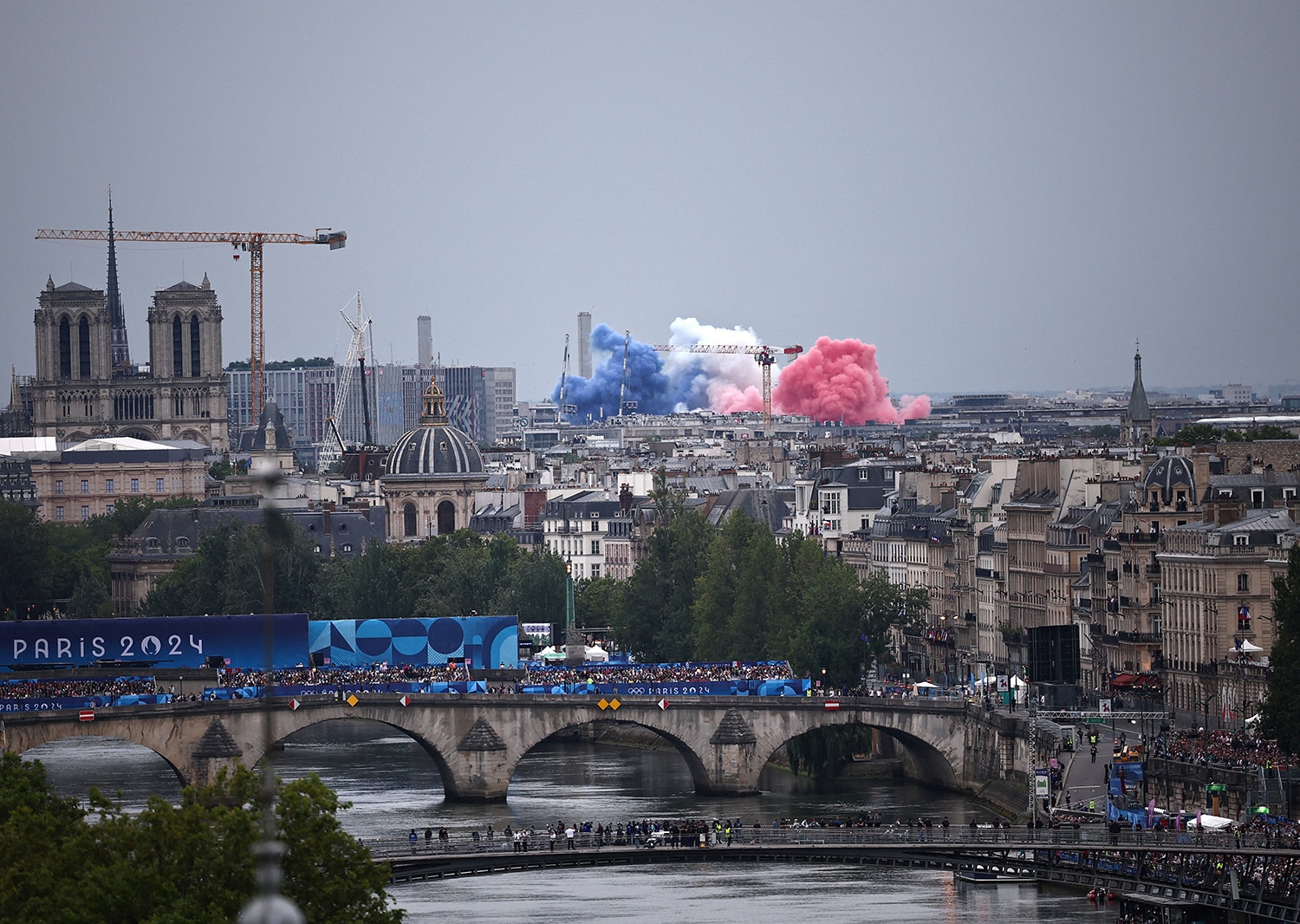The opening ceremonies of the Paris Olympic Games, envisioned as a grand celebration to unite all nations, instead delivered shock and disbelief to Catholics worldwide. What should have been a night of fraternity and unity turned into an occasion of grievous offense as the ceremonies featured a grotesque parody of the Last Supper.
On July 26, the four-hour spectacle began with a promising start. Athletes paraded down the Seine River, accompanied by music and dancing atop world-famous French monuments. Notre Dame Cathedral featured prominently with a moving tribute to the workers rebuilding this Parisian icon. The bells of the cathedral rang for the first time since the devastating 2019 fire, evoking a sense of hope and renewal. (The cathedral remains closed and under construction, but will be reopened with solemn dedication ceremonies in December.)
This hopeful tone was shattered when television cameras revealed a scene featuring drag queens seated at a table in a clear parody of Leonardo da Vinci’s “The Last Supper.” The central figure, depicting Jesus Christ, was a woman, wearing a monstrance-like crown. This sacrilegious display was followed by a nude singer symbolizing Dionysus, the ancient Greek god of wine, who reclined on the table in front of the Christ-figure. The official Olympic Games profile on X (formerly Twitter) claimed this representation aimed to highlight “the absurdity of violence between human beings.”
Swiftly condemned by the bishops of France
The French bishops swiftly issued a statement condemning these scenes, emphasizing that while the ceremony was a “marvelous display of beauty and joy,” it included mockery and derision of Christianity. The bishops’ statement resonates deeply with Catholics worldwide who felt alienated and insulted by this disrespectful portrayal of one of the most solemn and sacred moments of Christ’s life, the institution of the Eucharist, the source and summit of the Catholic faith.
Bishop Emmanuel Gobilliard of Digne, special representative of the Holy See for the Paris Olympics, expressed his deep hurt upon seeing the images. The Olympic Charter, which promotes the harmonious development of humankind and the preservation of human dignity, was blatantly disregarded. Organizers should be ashamed of using the world stage to demean and ridicule Christians, and they owe people of faith an apology.
Unity impeded by blasphemy
The Olympics are meant to be a beacon of unity, bringing together people from all corners of the globe, regardless of their religious or political beliefs. This vision was tarnished by blasphemous scenes that mocked Christianity, undermining the very essence of the Olympic movement.
One week before the Olympic Games, Pope Francis joined his voice to that of other world leaders calling for a traditional truce throughout the games. “According to ancient tradition, may the Olympics be an opportunity to establish a truce in wars, demonstrating a sincere will for peace,” the pope said at the conclusion of his Sunday Angelus address preceding the games. The Holy Father noted that “Sport also has a great social power, capable of peacefully uniting people from different cultures.”
Despite this deliberate offense intended by this obscene display, the Olympic Games hold immense potential to foster global unity and fraternity. The demonstration of athletic prowess, the celebration of diverse cultures and the shared joy of competition have the power to bridge even the deepest divides. It is crucial that future events remain respectful of Christian beliefs, ensuring that the Olympic spirit is upheld.
How should Catholics respond?
How should Catholics respond? One week ago, we were united in our Faith and in solidarity with the Church of the United States in Indianapolis for the 10th National Eucharistic Congress. We prayed in reparation for our personal sins and asked Jesus for healing and forgiveness.
In those heartfelt moments of prayer, we turned our eyes to the mystery of our redemption — the mystery of the Cross — opened for us in the Eucharist. Our Savior was betrayed, scorned and defamed. Bishop Andrew H. Cozzens, of Crookston, Minnesota, and chairman of the National Eucharistic Congress, Inc., said in a statement, “As his living body, we are invited to enter into this moment of passion with him, this moment of public shame, mockery, and persecution.”
We must denounce this evil in the clearest terms. We cannot stand by as the mystery which lies at the heart of our Faith is insulted. And with prayer and fasting, we must make amends for those who blaspheme and scorn that which we hold most dear.







